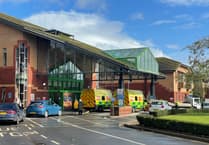I am not a theologian – so this reflection is intended to provoke thinking, rather than provide a definitive answer to the headline question.
A church is often seen as a building used by Christians – perhaps just for a short time on Sundays, or perhaps for a whole variety of spiritual and practical/social activities meeting community needs. Buildings which unfortunately seem to have roof problems, and be designed before disabled access or heating costs were part of the architect’s brief !
Perhaps more important, church is people – people who gather if they are able, to worship and learn and pray together. There are differences in styles of worship, and different emphases on aspects of Jesus Christ’s teaching (as recorded in the bible), so there are a variety of fellowships and congregations. However, despite the differences those church groups all aim to be part of God’s loving presence in an area.
So, if Church is buildings and people, what’s it for in the 21st Century when it doesn’t have the same ‘clout’ as in earlier times? In previous centuries the church set up many schools in towns and villages to provide basic education for children. Likewise, many hospitals were founded by churches (including St Barts, etc). Almshouses and Poor Law was administered by parishes long before state education, health, and welfare services existed.
Briefly – it seems the priority for churches is to explore and explain the fundamental instructions of Jesus: ie.To love and serve God and people - especially those at the margins. This concept flies in the face of individual selfish prosperity and security, which seems to dominate Western thinking today. But as the capacity of the State diminishes I believe more and more people will be attracted to the values and challenges of the Christian gospel and want to be involved – although they might not be attracted to Sunday services !
Alan Partridge
Fairplace Church
Okehampton




